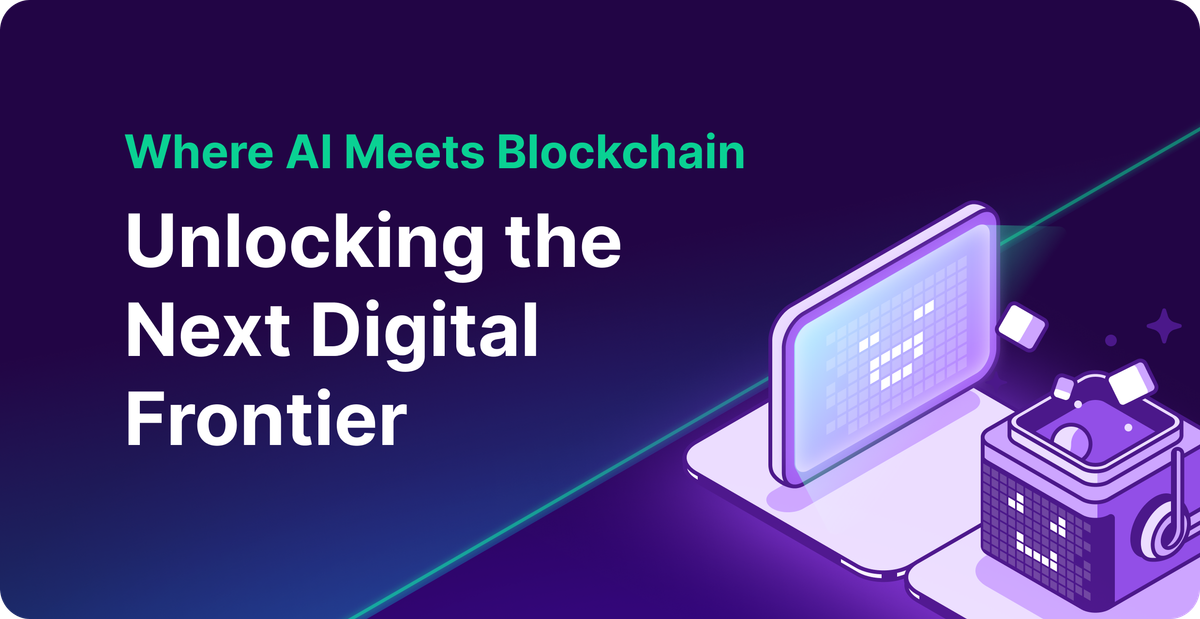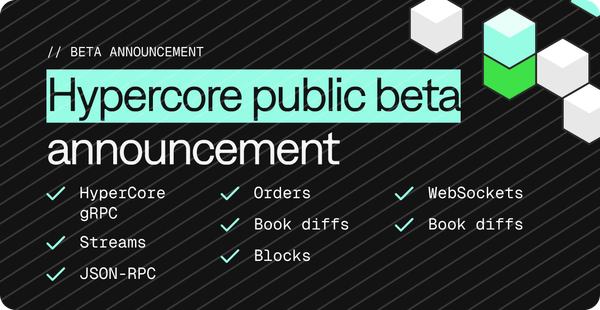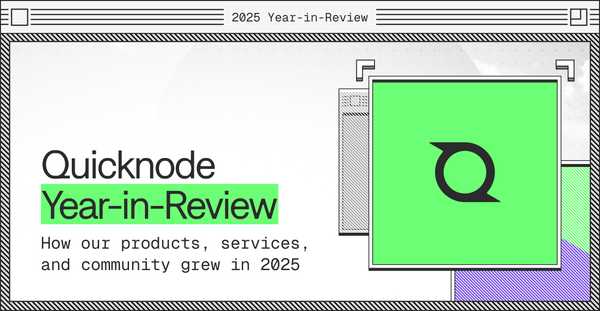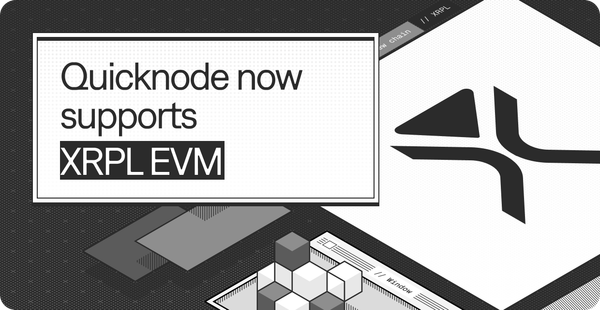AI Meets Blockchain: Transforming Technology for the Next Era
Discover how AI and blockchain integration enhances security, efficiency, and innovation in healthcare, supply chains, and financial services.

How can AI and blockchain together transform industries? In this article, discover how AI and blockchain enhance data security, streamline operations, and drive innovation in healthcare, supply chains, and finance. Learn about real-world applications and the future prospects of these advanced technologies working in tandem.
Key Takeaways
- Blockchain technology offers a secure and decentralized framework that enhances data integrity across various sectors, eliminating the need for third-party verification.
- The integration of AI with blockchain enhances operational efficiency, decision-making, and automation through advanced data analysis and smart contracts, driving innovations across industries.
- Decentralized AI systems leverage blockchain to ensure data security and transparency, facilitating collaborative processing and reducing reliance on central authorities.
Understanding Blockchain Technology
Blockchain technology, the backbone of the bitcoin blockchain and other cryptocurrencies, is essentially a distributed ledger that stores linked records called blocks. Each block is secured using cryptographic hashes, ensuring the authenticity blockchain’s digital record and making it tamper-resistant. This decentralized blockchains nature of blockchain networks and private blockchains is key to their resilience against fraud and hacking attempts, providing a higher level of security and trust in transactions.
A unique feature of blockchain technology is its ability to maintain multiple copies of data across various nodes in the network. This ensures that any discrepancies are quickly identified and corrected, preventing retroactive changes without the consensus of the network participants. Such characteristics define blockchain technology, including a shared and permanent ledger, assured encryption, and the elimination of double-spending issues.
Blockchain’s versatility extends beyond virtual currencies. Its blockchain applications span various sectors, including supply chain management, healthcare, and finance, where it enhances data integrity and transaction efficiency. Integrating blockchain allows businesses to eliminate third-party verifications, reduce costs, and streamline operations. This positions the ethereum blockchain implementation as a cornerstone for a decentralized future.
The Power of Artificial Intelligence
Artificial Intelligence (AI) mimics human decision-making and problem-solving capabilities using computers and data. At its core, AI encompasses technologies like machine learning and deep learning, which allow systems to improve their performance by learning from data. The AI ecosystem includes diverse technologies such as Natural Language Processing (NLP), computer vision, and generative AI, making it a versatile tool in the digital world.
One of AI’s most significant strengths is its ability to process and analyze vast amounts of data, far beyond human capabilities. Advanced AI algorithms derive more actionable insights from data, enhancing decision-making capabilities across various applications. AI tools automate tasks, improve customer experiences, and optimize business operations, making it indispensable for organizations.
The ability of AI to recognize patterns in large datasets is powered by complex algorithms and deep neural networks, which deliver enhanced insights and predictive analytics. This capability is crucial for industries dealing with big data, where AI can provide more precise and timely decisions. Moreover, training data and AI services contribute to energy consumption reduction by optimizing processes and improving operational efficiency.
In combination with blockchain, AI promises even greater advancements. For example, AI can enhance blockchain data analysis, providing dynamic execution of smart contracts and improving risk assessments. This symbiotic relationship between the two technologies allows for innovative applications and solutions that were previously unimaginable.
Synergy Between AI and Blockchain
The integration of AI with blockchain technology creates a powerful synergy that enhances data integrity, security, and overall system reliability. By using blockchain as a reliable source of refined data, AI applications can ensure data authenticity and improve the accuracy of their recommendations. This synergy is particularly beneficial in blockchain-based business networks, where data integrity is paramount.
AI can significantly enhance the consistency, understanding, and logic of blockchain networks by mining data to discover patterns and verifying their authenticity. This dual approach ensures that the data used by AI is not only accurate but also secure, thanks to blockchain’s cryptographic protections. Moreover, AI’s ability to read and correlate data rapidly offers enhanced intelligence within blockchain networks, providing more actionable insights.
Smart contracts powered by AI can dynamically adapt their logic over time based on historical data analysis, improving decision-making and security. This makes them ideal for applications requiring high levels of trust and transparency. Utilizing standardized protocols is essential for improving interoperability between AI and blockchain systems, ensuring seamless integration and functionality of the smart contract.
Blockchain technology eliminates the need for third-party verification, reducing costs and enhancing transaction efficiency. When combined with AI, this leads to more streamlined and secure processes, optimizing supply chain operations and other business applications. Together, AI and blockchain technology pave the way for a decentralized future where security, efficiency, and trust are paramount.
Decentralized AI Systems
Decentralized AI systems represent a significant leap forward in both scientific research and enterprise applications. By leveraging blockchain technology, these systems can securely share knowledge, supporting trust in decision-making without the need for a central authority. This decentralized approach enhances the capabilities of AI, allowing for more robust and transparent processes.
In a decentralized AI system, data is broken into small parts and distributed across the network, enabling parallel processing and enhancing efficiency. This method not only improves processing speed but also ensures data safety by maintaining a complete copy of the ledger on each participating computer within the network, where computer code plays a crucial role. Such systems require significant computing power, rapid connectivity, and data storage to realize their full potential, with data stored across multiple locations.
The blockchain ledger plays a crucial role in tracing decisions made through machine learning, enhancing the transparency of AI processes. By integrating blockchain technologies, decentralized AI systems can operate independently across different devices, promoting efficiency and reducing reliance on large data centers. This paves the way for a more decentralized future where AI can thrive without centralized control.
Security Methods in Decentralized AI
Ensuring data security in decentralized AI systems is paramount. Techniques such as Secured Multi-Party Computations (SMPC) allow collaborative analysis without revealing the underlying data, enabling multiple parties to compute results while keeping their input private. This method is essential for maintaining data integrity and confidentiality in a decentralized system.
GAN cryptography, introduced by Google, uses generative adversarial networks to protect communications, adding an extra layer of security to decentralized AI networks. Homomorphic encryption further enhances security by allowing computation on encrypted data without the need for a secret key. This ensures that sensitive data remains secure during processing, a critical requirement for decentralized AI.
Public-key cryptography is another vital technique that enhances data integrity and security within decentralized AI networks. By using these advanced security methods, decentralized AI platforms can ensure the privacy and integrity of data while enabling collaborative processing. These measures are crucial for fostering trust and reliability in decentralized AI systems.
Smart Contracts Powered by AI
Smart contracts, self-executing contracts with the terms of the agreement directly written into code, are a revolutionary application of blockchain technology. When powered by AI, these smart contracts become even more powerful, capable of executing certain actions based on AI models embedded within them. This integration generates more secure and intelligent contracts, reducing the potential for errors and fraud.
By leveraging AI, smart contracts can remove friction, add speed, and increase efficiency in various business operations. For example, AI can automate the execution of contract terms, ensuring that they are fulfilled accurately and promptly. This level of automation reduces the need for manual intervention, streamlining processes and reducing operational costs.
The dynamic nature of AI allows smart contracts to adapt their logic over time based on historical data and real-time analysis. This continuous improvement leads to smarter decision-making and enhances the overall functionality of smart contracts. As a result, integrating AI with blockchain technology paves the way for more efficient and secure blockchain-based business networks.
Real-World Applications of AI and Blockchain
The combination of AI and blockchain is already transforming various industries, demonstrating the practical applications and benefits of these two technologies working together. From healthcare to supply chain management and financial services, AI and blockchain are enhancing operational efficiency, security, and transparency.
Healthcare Innovations
In the healthcare sector, the integration of AI and blockchain is driving significant innovations. Blockchain technology provides a secure environment for sharing electronic health records, ensuring patient privacy and data integrity. This secure sharing is crucial in an industry where data sensitivity is paramount.
AI can analyze vast amounts of patient data to derive actionable insights, aiding in clinical decision-making and improving patient outcomes. By combining AI’s analytical power with blockchain’s security, healthcare providers can significantly improve service efficiency and reduce costs. This new wave of technological advancement represents a significant shift in how healthcare data is managed and utilized.
The collaboration of these two technologies is akin to an industrial revolution in healthcare, where advanced techniques and innovations are continuously emerging. The involvement of tech giants in this space further accelerates the adoption and development of these transformative solutions.
Enhancing Supply Chains
Supply chain management is another area where AI and blockchain are making a substantial impact. The integration of these technologies enhances data security, transparency, and overall efficiency in supply chains. By providing a reliable blockchain protocol, businesses can better handle and verify data, ensuring the integrity of their operations.
Various initiatives, such as the IBM Food Trust, are already implementing blockchain in supply chains to streamline operations and enhance transparency. These initiatives demonstrate the practical benefits of blockchain-based business networks in real-world applications. For instance, tracking carbon emissions at the product level is a significant step towards more sustainable and accountable supply chains.
AI further enhances supply chain business processes by analyzing data for actionable insights and automating various tasks through an ai application. This combination, where ai makes processes more efficient, leads to more efficient and transparent supply chains, benefiting not only businesses but also consumers and the environment.
Financial Services Transformation
The financial services sector is experiencing a transformation with the integration of AI and blockchain. AI enhances fraud detection in financial transactions, improving security and trust in fintech applications. This enhanced security is crucial for maintaining the integrity of financial systems.
Blockchain technology streamlines the loan approval process, making it faster and more efficient. Applicants can consent to access their personal records stored on blockchain, leading to quicker processing and faster loan approvals. This transparent exchange of data builds greater trust and satisfaction among customers.
In addition, blockchain improves back-office settlement systems in banking, accelerating transaction speeds and reducing operational costs. The combination of AI and blockchain significantly reduces transaction friction, expediting processes and enhancing overall business operations. This transformation ensures a more reliable and efficient financial services sector.
Challenges and Future Prospects
Despite the promising potential of AI and blockchain, there are challenges to consider. Integrating these technologies heightens scalability challenges due to their computational demands. For example, one Bitcoin transaction consumes 708 kilowatt-hours of energy, highlighting the significant energy demands of blockchain technology. Bitcoin’s annual energy consumption surpasses that of Argentina, reaching 121 terawatt-hours.
However, the combination of blockchain with responsible AI can improve ethical guidelines and accountability in AI applications, ensuring that these technologies are used responsibly. Explainable AI can analyze blockchain-stored data, leading to greater transparency in AI-generated insights. This transparency is crucial for building trust and confidence in AI applications.
Looking ahead, blockchain technology can transform the cyber threat intelligence cycle by enhancing data sharing and analysis to enhance data security. As these technologies continue to evolve, their integration will likely address current challenges and unlock new possibilities, paving the way for a more secure and efficient decentralized future.
Why should you use QuickNode for your AI Blockchain app?
QuickNode provides an invaluable platform for harnessing the power of AI and blockchain. As the best RPC provider hosting over 60 chains, QuickNode provides Plug-and-Play APIs that simplify the integration process. This ease of use allows developers to focus on building innovative applications rather than dealing with complex integrations.
QuickNode endpoints strictly adhere to native blockchain protocols, facilitating seamless integration with AI agents, from advanced models like GPT-4 and Claude to lightweight local LLMs. This adherence ensures that your AI blockchain app can operate efficiently and securely within the blockchain network.
By utilizing QuickNode, you can take advantage of its robust infrastructure and comprehensive support, ensuring a smooth and efficient blockchain implementation. Whether you are working on blockchain projects or developing decentralized AI applications, QuickNode provides the tools and support needed to succeed in this rapidly evolving technological landscape.
Summary
The fusion of AI and blockchain technology represents a new frontier in the digital world. By understanding the foundational aspects of blockchain, including its decentralized nature and cryptographic security, we can appreciate its transformative impact on various industries. Similarly, the immense processing power and analytical capabilities of AI provide organizations with actionable insights and improved decision-making.
Together, AI and blockchain create a powerful synergy that enhances data integrity, security, and operational efficiency. Whether through decentralized AI systems that promote transparency and trust, or AI-powered smart contracts that automate and secure transactions, the potential applications are vast and varied. Real-world implementations in healthcare, supply chain management, and financial services already demonstrate the significant benefits of integrating these technologies.
As we look to the future, the challenges of scalability and energy consumption must be addressed. However, the continuous evolution of AI and blockchain promises to overcome these hurdles, paving the way for a more decentralized and efficient world. QuickNode stands out as a valuable tool for developers looking to leverage this synergy, offering robust infrastructure and seamless integration capabilities. The journey of AI and blockchain is just beginning, and the possibilities are limitless.
Frequently Asked Questions
How does blockchain enhance the security of AI applications?
Blockchain enhances the security of AI applications by offering a tamper-proof ledger that safeguards data integrity and prevents unauthorized access. This ensures that the data utilized by AI systems remains secure and trustworthy.
What are the benefits of decentralized AI systems?
Decentralized AI systems enhance transparency and data safety while enabling independent processing across multiple devices, thereby improving efficiency and decreasing dependence on large data centers. This approach fosters a more resilient and adaptable AI infrastructure.
How do AI-powered smart contracts improve business operations?
AI-powered smart contracts enhance business operations by automating contract execution, which ensures accuracy and timeliness while minimizing manual intervention, ultimately increasing overall efficiency.
What are some real-world applications of AI and blockchain in healthcare?
AI and blockchain enhance healthcare by ensuring data integrity and patient privacy, while facilitating secure sharing of electronic health records and analyzing large datasets for improved clinical decision-making. Their combined use can significantly transform patient care and operational efficiency in the healthcare sector.
Why should developers use QuickNode for their AI blockchain applications?
Developers should utilize QuickNode for their AI blockchain applications due to its robust infrastructure and Plug-and-Play APIs, which ensure seamless integration and efficient operations within native blockchain protocols.






